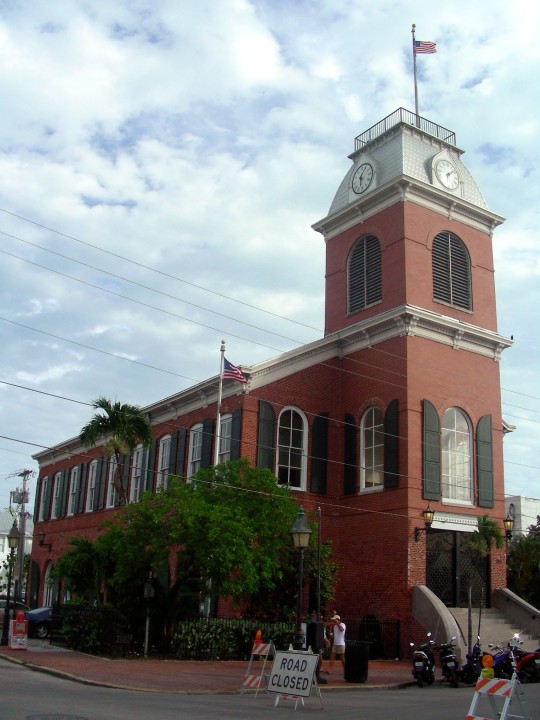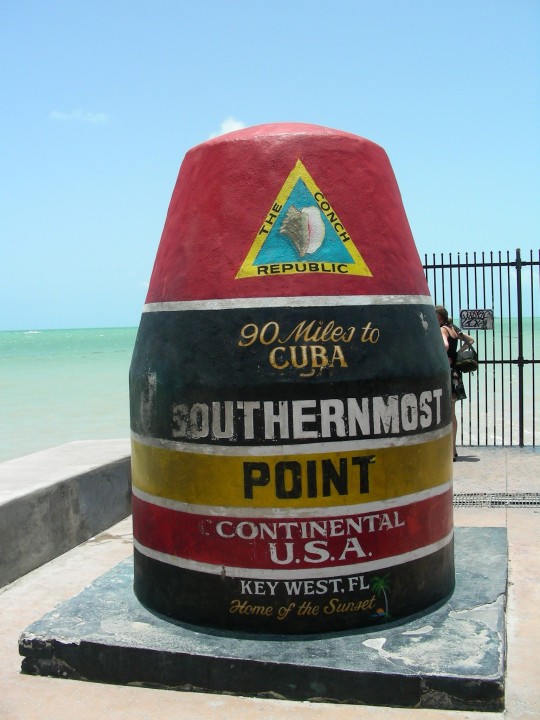#us chamber of commerce
Explore tagged Tumblr posts
Text
Chris Geidner at Law Dork:
Just before the close of business Tuesday, items appeared on two court dockets with which Law Dork readers are all too familiar that showed how far removed reality is from the ideal of “equal justice under law” engraved above the U.S. Supreme Court’s doors.
The items show — in shocking if predictable contrast — that the U.S. Court of Appeals for the Fifth Circuit is continuing to aggressively and explicitly encourage and protect forum-shopping for the right while federal courts in Alabama are continuing to aggressively investigate judicial concerns about alleged forum-shopping in LGBTQ civil rights litigation. First on Tuesday, two Trump appointees issued a ruling ordering, yet again, that a conservative ideological challenge to a Biden administration rule must remain within their ultraconservative circuit. Moments later, LGBTQ civil rights lawyers filed a notice that they had complied with the invasive order from another Trump appointee that he be allowed to review a document that they maintain is protected by attorney-client privilege as part of a two-year judge-shopping investigation. This issue is not new — I wrote about this issue more generally on June 10 — but Tuesday’s news developments are particularly stark examples of the differences in result that are the consequences of these differences in treatment.
Heads, the Chamber wins
For conservative forces — here, the Chamber of Commerce fighting the Consumer Financial Protection Bureau’s credit card late fee rule — Judges Don Willett of the U.S. Court of Appeals for the Fifth Circuit has twice issued writs of mandamus to stop U.S. District Judge Mark Pittman, a fellow Trump appointee, from transferring the challenge to the federal court in D.C. Pittman, after the first go-round, harshly criticized the “landmines” laid by the Fifth Circuit. In Tuesday’s order, Willett’s libertarianism was supported by Judge Kyle Duncan’s Christian nationalism to … protect business interests. [...]
Tails, LGBTQ civil rights lawyers lose
A little more than a 10-hour drive across the South away — across Texas, Louisiana, and Mississippi and up Alabama — lawyers submitted a document to U.S. District Judge Liles Burke that they insist is protected by attorney-client privilege but that he has now twice ordered the LGBTQ civil rights lawyers to turn over more than two years into a judge-shopping investigation. Burke himself prompted the investigation by questioning in a court order whether parties’ dismissal of two cases challenging the state’s new ban on gender-affirming care for minors and lawyers’ discussion that another challenge would be brought constituted judge-shopping.
Chris Geidner writes in Law Dork how right-wing interests get deferential treatment in various courts, especially the 5th Circuit Court.
#SCOTUS#Courts#US Chamber of Commerce#5th Circuit Court#Boe v. Marshall#Liles Burke#Don Willett#Mark Pittman#Kyle Duncan
6 notes
·
View notes
Text
youtube
A deep dive into capitalism with Scene on Radio podcast co-host John Biewen, July 5,2024
Scene on Radio, the Peabody-nominated podcast series produced by The Kenan Institute for Ethics at Duke University, has dedicated its latest season to exploring the history, failures and future of capitalism over the course of 13 episodes. John Biewen, co-host of the podcast, joins us from North Carolina for a big picture conversation about the system that governs the lives of a large chunk of humanity. France 24
#France 24#People & Profit#Capitalism#Scene on Radio#John Biewen#Kenan Institute for Ethics#duke university#Adam Smith#neoliberalism#economics#history#politics#USA#globalism#market economy#ethics#profiteering#exploitation#The Wealth of Nations#regulation#US Chamber of Commerce#Powell Memorandum#Lewis Powell Jr.#Richard Nixon#Youtube
4 notes
·
View notes
Link
#supreme court#SCOTUS#Lewis Powell#us chamber of commerce#USA#politics#big business#corruption#corporate takeover#corporations
2 notes
·
View notes
Text




















The Conch Republic was a micronation declared as a tongue-in-cheek secession of the city of Key West from the United States on April 23, 1982.
#Conch Republic#23 April 1982#anniversary#US history#Florida#travel#Florida Keys#Key West#architecture#cityscape#tourist attraction#landmark#Atlantic Ocean#original photography#summer 2010#Greater Key West Chamber of Commerce#Southernmost Point Buoy#old Custom House#Duval Street#St Paul's Episcopal Church#Sloppy Joe's Bar#Old City Hall#Mallory Square#vacation#USA
11 notes
·
View notes
Text
Update on FTC Noncompete Ban: Court Challenges Begin
On April 23 we reported on the Federal Trade Commission’s vote to ban almost all non-competition agreements in the United States. Within hours of that vote, Ryan LLC, a global tax consulting firm headquartered in Dallas, filed a lawsuit in the U.S. District Court for the Northern District of Texas challenging the FTC’s authority to issue such a rule. The U.S. Chamber of Commerce has been…

View On WordPress
#5th circuit#administrative procedure act#Article 1#ban#Federal Trade Commission#Fifth Circuit#FTC#noncompete#Noncompete ban. Chamber of Commerce#Northern District of Texas#Ryan LLC#US constitution
0 notes
Text
The powerful U.S. Chamber of Commerce sued the Federal Trade Commission on Wednesday in an effort to block the agency's widely celebrated new rule banning most noncompete clauses, pervasive contract agreements that restrict employees' ability to work for or start a competing business.
The Chamber filed its lawsuit alongside the Business Roundtable and other corporate lobbying groups in a federal court in Texas. The suit came shortly after Ryan LLC, a tax service firm, filed the first legal challenge to the FTC's rule in a separate Texas venue.
"The commission's categorical ban on virtually all non-competes amounts to a vast overhaul of the national economy," reads the Chamber's complaint against the rule, which the FTC finalized in a 3-2 vote on Tuesday.
The agency, led by Biden-appointed Commissioner Lina Khan, estimates that roughly 30 million U.S. workers are subject to a noncompete agreement, limiting their ability to start their own companies or switch jobs in pursuit of better wages and benefits.
"Noncompete clauses keep wages low, suppress new ideas, and rob the American economy of dynamism, including from the more than 8,500 new startups that would be created a year once noncompetes are banned," Khan said in a statement Tuesday. "The FTC's final rule to ban noncompetes will ensure Americans have the freedom to pursue a new job, start a new business, or bring a new idea to market."
The Chamber, the largest corporate lobbying organization in the United States, signaled its intent to sue the FTC immediately after the agency finalized its new rule on Tuesday.
"The Federal Trade Commission's decision to ban employer noncompete agreements across the economy is not only unlawful but also a blatant power grab that will undermine American businesses’ ability to remain competitive," Chamber president and CEO Suzanne Clark said in a statement following the FTC's vote.
While the organization claims to fight for the interests of businesses small and large, a Public Citizen report published earlier this year found that the majority of the Chamber's legal work supports big corporations.
The Chamber acknowledged in response to questioning from a pair of Democratic senators last year that its corporate members use noncompete clauses—though the group did not specify which members.
"Why does the U.S. Chamber of Commerce hate dynamism in the American economy, where workers are free to move to the best opportunities, and companies are free to recruit the best talent?" asked University of Massachusetts Amherst economics professor Arin Dube in response to the Chamber's pledge to sue over the FTC's rule.
According to the FTC, its ban would boost the average U.S. worker's earnings by $524 a year, increase new business formation by close to 3% annually, and lower national healthcare costs by nearly $200 billion over the next decade.
#us politics#chamber of commerce#federal trade commission#noncompete agreements#Business roundtable#corporate lobbying
0 notes
Text
Chinese Premier meets US Chamber of Commerce delegation
Li Qiang, Premier of the State Council of the People’s Republic of China, met with a delegation from the US Chamber of Commerce led by Suzanne P. Clark, President and CEO of the US Chamber of Commerce, at the Great Hall of the People on 28 February, Ministry of Foreign Affairs of the People’s Republic of China reports.
Since the summit meeting of Chinese and US heads of state in San Francisco last November, the two sides have held a series of dialogues and communications to promote pragmatic cooperation between the two countries, Li Qiang said.
This year marks the 45th anniversary of the establishment of diplomatic relations between China and the US. On this occasion, Chinese President Xi Jinping and US President Joe Biden exchanged congratulatory letters, stressing their unwavering commitment to the stabilisation and development of China-US relations for the benefit of both countries and the world.
Read more HERE

#world news#world politics#news#usa news#us news#china#china news#chinese politics#china politics#chamber of commerce#li qiang#world economic forum
0 notes
Text
Us Arab chamber of commerce
The term "US Arab Chamber of Commerce" generally refers to organizations or chambers of commerce that aim to facilitate and promote business and trade relations between the United States and Arab countries. While there isn't a single entity known as the "US Arab Chamber of Commerce," there are several organizations, both in the U.S. and in Arab countries, that work towards fostering economic ties between the two regions.
Here are a few key points related to the concept of the US Arab Chamber of Commerce:
Bilateral Trade Promotion:
Organizations with a focus on US-Arab commerce work to enhance economic cooperation, trade, and investment between businesses in the United States and the Arab world.
Networking and Collaboration:
These chambers of commerce provide platforms for networking, collaboration, and information exchange among businesses, entrepreneurs, and professionals from the U.S. and Arab nations.
Trade Missions and Events:
Many of these organizations organize trade missions, conferences, and events that bring together representatives from both regions to explore business opportunities, discuss challenges, and foster partnerships.
Business Services:
They often offer various services such as market research, business matchmaking, and assistance with navigating regulatory and cultural aspects of doing business in the respective regions.
Cultural Understanding:
Apart from economic goals, these chambers often play a role in promoting cultural understanding and collaboration between the United States and Arab countries.
It's important to note that there may be multiple chambers or organizations working towards these goals, and the specific name or structure might vary. Additionally, each Arab country may have its own chamber of commerce or business association that collaborates with U.S. counterparts.
If you have a specific organization or chamber in mind, providing its complete name would allow for more detailed and accurate information.

1 note
·
View note
Text
youtube
Use Your Knowledge To Create A Business That Will Set You Free
#create a business#use your knowledge#business#companies office#network marketing#website company size#business for sale#chamber of commerce#business daily#self employed#business development#small business#online business#Will Set You Free#Create A Business#Use Your Knowledge#Youtube
0 notes
Text
youtube
Use Your Knowledge To Create A Business That Will Set You Free
In a rapidly evolving world, the pursuit of financial freedom and personal fulfillment has become a common aspiration for many individuals. The title, "Use Your Knowledge To Create A Business That Will Set You Free," encapsulates the idea of leveraging one's expertise, skills, and passion to build a business that not only generates income but also provides a sense of autonomy and fulfillment.
#create a business#use your knowledge#business#companies office#network marketing#website company size#business for sale#chamber of commerce#business daily#self employed#business development#small business#online business#Will Set You Free#Create A Business#Use Your Knowledge#Youtube
0 notes
Text
Use Your Knowledge To Create A Business That Will Set You Free
youtube
In a rapidly evolving world, the pursuit of financial freedom and personal fulfillment has become a common aspiration for many individuals. The title, "Use Your Knowledge To Create A Business That Will Set You Free," encapsulates the idea of leveraging one's expertise, skills, and passion to build a business that not only generates income but also provides a sense of autonomy and fulfillment.
#create a business#use your knowledge#business#companies office#network marketing#website company size#business for sale#chamber of commerce#business daily#self employed#business development#small business#online business#Will Set You Free#Create A Business#Use Your Knowledge#Youtube
1 note
·
View note
Text
In 2020, Robert Kuciemba, a woodworker in San Francisco was infected with covid by a co-worker after his Nevada-based Victory Woodworks transferred a number of sick workers to the San Francisco site for a few months.
Through the proceedings of the case it turns out that the employer knew some employees might be sick but they transferred them anyway and ignored a San Francisco ordinance in place at the time to quarantine suspected covid cases.
Kuciemba was subsequently infected and he then infected his wife, who ended up in ICU on a ventilator.
The California Supreme Court just ruled against Kuciemba on the basis that a victory, while, in the court's words, "morally" the right thing to do, would create "dire financial consequences for employers" and cause a "dramatic expansion of liability" to stop the spread of covid.
There’s a few stunning details to note in this case. First, the court agreed that there is no doubt the company had ignored the San Francisco health ordinance. In other words, they accepted the company had broken the law. And then concluded “yeah, but, capitalism.”
Secondly, the case was so obviously important to the struggle between capitalism and mass infection that the US Chamber of Commerce, the largest business lobbying organisation got involved and helped the company with its defence. Remember, this is a tiny company in a niche industry. The involvement of the biggest business lobbyists in the country tells us a lot about the importance of the principle they knew was at stake.
Thirdly, the defence of the company is very telling. They said “There is simply no limit to how wide the net will be cast: the wife who claims her husband caught COVID-19 from the supermarket checker, the husband who claims his wife caught it while visiting an elder care home."
Well, exactly. Capitalism couldn’t survive if employers were liable for covid infections contracted in the workplace, and the ripple effect of those infections. And they know it.
This case is something of a covid smoking gun, revealing what we always suspected but had never seen confirmed in so many words: the public health imperative of controlling a pandemic virus by making employers liable for some of that control is, and always must be, secondary to capitalist profit.
This ruling is also saying out loud what has been obvious to anyone paying attention for the last two years: employers don’t have a responsibility to keep your family safe from covid. You have that responsibility. And if you give a family member covid that you caught at work and they get sick or die – even if it was a result of law-breaking by your employer – that’s on you buddy.
It is the same old capitalist story: the shunting of responsibility for ills that should be shared across society, including employers in that society, onto individuals.
This ruling essentially helps codify workplace mass infection and justifies it as necessary for the smooth functioning of capitalism.
This is not new. This is where the ‘just a cold’ and the ‘mild' narrative came from. It came from doctors and healthcare experts whose first loyalty was to capitalism. Not to public health. To money, not to lives. Abetted by media who uncritically platformed them.
While this ruling tells us little that we couldn’t already see from the public policy approach of the last two years, it is revealing (and to some extent validating) to see it confirmed by the highest law of the land in the United States.
8K notes
·
View notes
Photo










The Conch Republic was a micronation declared as a tongue-in-cheek secession of the city of Key West from the United States on April 23, 1982
#Mallory Square#Duval Street#Greater Key West Chamber of Commerce#St Paul's Episcopal Church#Sloppy Joe's Bar#old city hall#Florida Keys Historic War Memorial#Museum of Art & History#Custom House#Conch Republic#Key West#23 April 1982#anniversary#US history#USA#Florida#summer 2020#architecture#cityscape#tourist attraction#landmark#street scene
3 notes
·
View notes
Text
Canada’s ground-breaking, hamstrung repair and interop laws

If you'd like an essay-formatted version of this post to read or share, here's a link to it on pluralistic.net, my surveillance-free, ad-free, tracker-free blog:
https://pluralistic.net/2024/11/15/radical-extremists/#sex-pest

When the GOP trifecta assumes power in just a few months, they will pass laws, and those laws will be terrible, and they will cast long, long shadows.
This is the story of how another far-right conservative government used its bulletproof majority to pass a wildly unpopular law that continues to stymie progress to this day. It's the story of Canada's Harper Conservative government, and two of its key ministers: Tony Clement and James Moore.
Starting in 1998, the US Trade Rep embarked on a long campaign to force every country in the world to enact a new kind of IP law: an "anticircumvention" law that would criminalize the production and use of tools that allowed people to use their own property in ways that the manufacturer disliked.
This first entered the US statute books with the 1998 passage of the Digital Millennium Copyright Act (DMCA), whose Section 1201 established a new felony for circumventing an "access control." Crucially, DMCA 1201's prohibition on circumvention did not confine itself to protecting copyright.
Circumventing an access control is a felony, even if you never violate copyright law. For example, if you circumvent the access control on your own printer to disable the processes that check to make sure you're using an official HP cartridge, HP can come after you.
You haven't violated any copyright, but the ink-checking code is a copyrighted work, and you had to circumvent a block in order to reach it. Thus, if I provide you a tool to escape HP's ink racket, I commit a felony with penalties of five years in prison and a $500k fine, for a first offense. So it is that HP ink costs more per ounce than the semen of a Kentucky Derby-winning stallion.
This was clearly a bad idea in 1998, though it wasn't clear how bad an idea it was at the time. In 1998, chips were expensive and underpowered. By 2010, a chip that cost less than a dollar could easily implement a DMCA-triggering access control, and manufacturers of all kinds were adding superfluous chips to everything from engine parts to smart lightbulbs whose sole purpose was to transform modification into felonies. This is what Jay Freeman calls "felony contempt of business-model."
So when the Harper government set out to import US-style anticircumvention law to Canada, Canadians were furious. A consultation on the proposal received 6,138 responses opposing the law, and 54 in support:
https://www.michaelgeist.ca/2010/04/copycon-final-numbers/
And yet, James Moore and Tony Clement pressed on. When asked how they could advance such an unpopular bill, opposed by experts and the general public alike, Moore told the International Chamber of Commerce that every objector who responded to his consultation was a "radical extremist" with a "babyish" approach to copyright:
https://www.cbc.ca/news/science/copyright-debate-turns-ugly-1.898216
As is so often the case, history vindicated the babyish radical extremists. The DMCA actually has an official way to keep score on this one. Every three years, the US Copyright Office invites public submissions for exemptions to DMCA 1201, creating a detailed, evidence-backed record of all the legitimate activities that anticircumvention law interferes with.
Unfortunately, "a record" is all we get out of this proceeding. Even though the Copyright Office is allowed to grant "exemptions," these don't mean what you think they mean. The statute is very clear on this: the US Copyright Office is required to grant exemptions for the act of circumvention, but is forbidden from granting exemptions for tools needed to carry out these acts.
This is headspinningly and deliberately obscure, but there's one anecdote from my long crusade against this stupid law that lays it bare. As I mentioned, the US Trade Rep has made the passage of DMCA-like laws in other countries a top priority since the Clinton years. In 2001, the EU adopted the EU Copyright Directive, whose Article 6 copy-pastes the provisions of DMCA 1201.
In 2003, I found myself in Oslo, debating the minister who'd just completed Norway's EUCD implementation. The minister was very proud of his law, boasting that he'd researched the flaws in other countries' anticircumvention laws and addressed them in Norway's law. For example, Norway's law explicitly allowed blind people to bypass access controls on ebooks in order to feed them into text-to-speech engines, Braille printers and other accessibility tools.
I knew where this was going. I asked the minister how this would work in practice. Could someone sell a blind person a tool to break the DRM on their ebooks? Of course not, that's totally illegal. Could a nonprofit blind rights group make such a tool and give it away to blind people? No, that's illegal too. What about hobbyists, could they make the tool for their blind friends? No, not that either.
OK, so how do blind people exercise their right to bypass access controls on ebooks they own so they can actually read them?
Here's how. Each blind person, all by themself, is expected to decompile and reverse-engineer Adobe Reader, locate a vulnerability in the code and write a new program that exploits that vulnerability to extract their ebooks. While blind people are individually empowered to undertake this otherwise prohibited activity, they must do so on their own: they can't share notes with one another on the process. They certainly can't give each other the circumvention program they write in this way:
https://pluralistic.net/2024/10/28/mcbroken/#my-milkshake-brings-all-the-lawyers-to-the-yard
That's what a use-only exemption is: the right to individually put a locked down device up on your own workbench, and, laboring in perfect secrecy, figure out how it works and then defeat the locks that stop you from changing those workings so they benefit you instead of the manufacturer. Without a "tools" exemption, a use exemption is basically a decorative ornament.
So the many use exemptions that the US Copyright Office has granted since 1998 really amount to nothing more than a list of defects in the DMCA that the Copyright Office has painstaking verified but is powerless to fix. We could probably save everyone a lot of time by scrapping the triennial exemptions process and replacing it with an permanent sign over the doors of the Library of Congress reading "Abandon hope, all ye who enter here."
All of this was well understood by 2010, when Moore and Clement were working on the Canadian version of the DMCA. All of this was explained in eye-watering detail to Moore and Clement, but was roundly ignored. I even had a go at it, publicly picking a fight with Moore on Twitter:
https://web.archive.org/web/20130407101911if_/http://eaves.ca/wp-content/uploads/2010/Conversations%20between%20@doctorow%20and%[email protected]
Moore and Clement rammed their proposal through in the next session of Parliament, passing it as Bill C-11 in 2012:
https://en.wikipedia.org/wiki/Copyright_Modernization_Act
This was something of a grand finale for the pair. Today, Moore is a faceless corporate lawyer, while Clement was last seen grifting covid PPE (Clement's political career ended abruptly when he sent dick pics to a young woman who turned out to be a pair of sextortionists from Cote D'Ivoire, and was revealed as a serial sex-pest in the ensuing scandal:)
https://globalnews.ca/news/4646287/tony-clement-instagram-women/
Even though Moore and Clement are long gone from public life, their signature achievement remains a Canadian disgrace, an anchor chain tied around the Canadian economy's throat, and an impediment to Canadian progress.
This week, two excellent new Canadian laws received royal assent: Bill C-244 is a broad, national Right to Repair law; and Bill C-294 is a broad, national interoperability law. Both laws establish the right to circumvent access controls for the purpose of fixing and improving things, something Canadians deserve and need.
But neither law contains a tools exemption. Like the blind people of Norway, a Canadian farmer who wants to attach a made-in-Canada Honeybee tool to their John Deere tractor is required to personally, individually reverse-engineer the John Deere tractor and modify it to talk to the Honeybee accessory, laboring in total secrecy:
https://www.theregister.com/2024/11/12/canada_right_to_repair/
Likewise the Canadian repair tech who fixes a smart speaker or a busted smartphone – they are legally permitted to circumvent in order to torture the device's repair codes out of it or force it to recognize a replacement part, but each technician must personally figure out how to get the device firmware to do this, without discussing it with anyone else.
Thus do Moore and Clement stand athwart Canadian self-reliance and economic development, shouting "STOP!" though both men have been out of politics for years.
There has never been a better time to hit Clement and Moore's political legacy over the head with a shovel and bury it in a shallow grave. Canadian technologists could be making a fortune creating circumvention devices that repair and improve devices marketed by foreign companies.
They could make circumvention tools to allow owners of consoles to play games by Canadian studios that are directly sold to Canadian gamers, bypassing the stores operated by Microsoft, Sony and Nintendo and the 30% commissions they charge. Canadian technologists could be making diagnostic tools that allow every auto-mechanic in Canada to fix any car manufactured anywhere in the world.
Canadian cloud servers could power devices long after their US-based manufacturers discontinue support for them, providing income to Canadian cloud companies and continued enjoyment for Canadian owners of these otherwise bricked gadgets.
Canada's gigantic auto-parts sector could clone the security chips that foreign auto manufacturers use to block the use of third party parts, and every Canadian could enjoy a steep discount every time they fix their cars. Every farmer could avail themselves of third party parts for their tractors, which they could install themselves, bypassing the $200 service call from a John Deere technician who does nothing more than look over the farmer's own repair and then types an unlock code into the tractor's console.
Every Canadian who prints out a shopping list or their kid's homework could use third party ink that sells for pennies per liter, rather than HP's official colored water that cost more than vintage Veuve Cliquot.
A Canadian e-waste dump generates five low-paid jobs per ton of waste, and that waste itself will poison the land and water for centuries to come. A circumvention-enabled Canadian repair sector could generate 150 skilled, high-paid community jobs that saves gadgets and the Earth, all while saving Canadians millions.
Canadians could enjoy the resliency that comes of having a domestic tech and repair sector, and could count on it through pandemics and Trumpian trade-war.
All of that and more could be ours, except for the cowardice and greed of Tony Clement and James Moore and the Harper Tories who voted C-11 into law in 2012.
Everything the "radical extremists" warned them of has come true. It's long past time Canadians tore up anticircumvention law and put the interests of the Canadian public and Canadian tech businesses ahead of the rent-seeking enshittification of American Big Tech.
Until we do that, we can keep on passing all the repair and interop laws we want, but each one will be hamstrung by Moore and Clement's "felony contempt of business model" law, and the contempt it showed for the Canadian people.

Image: JeffJ (modified) https://en.wikipedia.org/wiki/File:Tony_Clement_-_2007-06-30_in_Kearney,_Ontario.JPG
CC BY-SA 3.0 https://creativecommons.org/licenses/by-sa/3.0/
--
Jorge Franganillo (modified) https://commons.wikimedia.org/wiki/File:Duga_radar_system-_wreckage_of_electronic_devices_(37885984654).jpg
CC BY 2.0 https://creativecommons.org/licenses/by/2.0/deed.en
#pluralistic#o canada#canada#cdnpoli#bill c32#anticircumvention#interoperability#trumpism#technological self-determination#c32#bill c244#bill c294#c244#c294#interop#repair#r2r#right to repair#tools exemptions#use exemptions#trade war#economic development
503 notes
·
View notes
Text
Paul Blest at More Perfect Union:
Thousands of workers at a Volkswagen plant in Chattanooga, Tennessee have voted to join the United Auto Workers, defying an all-out union-busting effort from the state’s political leaders and marking a key victory for the United Auto Workers in their renewed effort to organize the South and non-union plants.
Unofficial results tallied Friday showed that after three days of voting, more than two-thirds of workers voted to join the UAW. The win in Chattanooga is the first successful attempt to organize a non-union automaker in decades and comes after multiple failed attempts to organize the plant, including in 2014 and 2019. More than 4,300 workers were eligible to vote this week. “I can't explain it. It's not like the first times,” Renee Berry, who has worked at the Chattanooga plant for 14 years and through two prior facility-wide votes, told us in the lead-up to the election. “The first few times was hell…now it's like we can roll our shoulders back, because we got it.” Volkswagen is the world’s largest auto company by revenue, and until today, every one of its plants around the globe has been unionized except for one.
"This is going to be in history books down the road. This is huge—forever huge,” Robert Soderstrom, a worker at the plant, told More Perfect Union. “People recognize for the first time in a long time, on a mass scale, that there's got to be some changes. And some of the power and stuff that's gone to the corporate world needs to come back to us little guys.” The victory in Tennessee continues a winning streak for the UAW, which negotiated record contracts at the Detroit Three of Ford, GM, and Stellantis last year following a lengthy “stand-up” strike. After passing the contracts, UAW President Shawn Fain announced a $40 million effort to organize non-union U.S. plants, largely based in right-to-work states like Tennessee and owned by auto companies based in Europe, Japan, and South Korea, as well as EV manufacturers like Tesla and Rivian.
Since launching that new effort, more than 10,000 autoworkers around the country have signed union cards, according to the UAW. Earlier this month, workers at a Mercedes plant in Vance, Alabama became the second group to file for an election, which will be held from May 13 to 17. Alabama Gov. Kay Ivey and the state Chamber of Commerce have forcefully opposed the unionization effort, claiming it would hurt Alabama autoworkers—who, even before the pandemic, were making less than they did in 2002 when adjusted for inflation. The same dynamic has played out in Tennessee. Gov. Bill Lee, who denounced the last unsuccessful union campaign in 2019, said it would be a “mistake” for workers at the Chattanooga plant to unionize and boasted about the state’s “right-to-work” law.
🚨🚨 BREAKING:🚨🚨 Workers at the Volkswagen (VW) plant in Chattanooga have voted yes to join the United Auto Workers (UAW) after 2 failed attempts in 2014 and 2019. #UAW #VWChattanooga #1u
#Unionizaion#Unions#Labor#Labor Unions#Workers' Rights#VW Chattanooga#Chattanooga Tennessee#US News#Chattanooga#UAW#United Auto Workers#Volkswagen#VW#UAW Strike
439 notes
·
View notes
Text
To talk about monopoly & antitrust, I want to start off with your first day in Econ 101, when you learn "how prices work". The toy model that nearly everyone learns as one of the first things ever is that classic supply-and-demand graph of price and quantity; you know it, I don't need to show it. And in relation to how firms set price in a market, the explanation you get is something like:
"In a world with perfect information, zero transaction costs, rational agents, and no barriers to entry, new firms and/or increased output will enter the market until marginal price equals marginal cost"
This (seemingly) portrays a model where new companies "entering the market" is how prices go down. Like say there are Firms A, B, and C, engaging in oligopolistic pricing for a normal good; what happens is some new Firm X (with the same production costs) emerges with the sole business strategy of "offer prices lower than them because they are skimming" and it drives everyone's prices down in a race to the bottom. That, in a sense, competition between identical firms drives the price equilibrium.
That isn't very true, not in practice and not even theoretically; the 101 stuff just sort of biases you to see it that way. Firm X above is being rational in one way but silly in others; why would it enter a market where its competitors are making healthy profits just to fuck that up, knowing it has no advantage they can't immediately replicate in response? And pay all the fixed costs other firms have already paid to make that 0.1% profit? In real life firms almost never do this, they compete over (actual or perceived) advantage or market segmentation. And it also means that - if all firms are truly the same in a market - cooperating on price, far from being aberrant behavior, is the natural thing to do. Why would I look at my rival firm and lower my price to "undercut" them, knowing that they 100% can just lower it too? We both lose, immediately. In practice, companies often set their prices by looking at the prices of competing firms and matching them!
Many things actually drive the price equilibrium of course, but one of the biggest - and most useful for our purposes - is the substitution effect. If companies defacto cooperate on prices all the time, why is the price not infinity? Well because if you are selling steaks and set the price to infinity, I'm not gonna buy it! I can just buy chicken, for me it's pretty much the same. And chicken is cheaper to make than steak. As a chicken firm, I totally can set my price under your steak and you can never, ever match it; that is a real advantage, one from asymmetries of production. The price of steak is driven by the need to compete with chicken much more than it is driven by the need to compete with "other steaks". And so on down a chain of a million desires and costs and needs.
So to wrap this around to antitrust, there is a common idea out there that monopolistic pricing is increasing from the past because if I look at different industries, so many of them today are consolidated into 2-3 big firms. Your grocery stores are all Giant or Safeway or w/e it is in your city, if you are buying a TV Samsung & LG are half the entire US market. How could these companies not collude on price? Of course they do, and they don't need explicit agreements that would violate extant FTC regulations to do it; they can just softly communicate and feel out cooperation. So you gotta break them up and change the rules so they can't do that.
The trap is thinking this is any different if it was 10 firms - it really isn't! Maybe marginally, sure, and if it was 2000 firms yeah okay the sheer chaos would probably create some price churn; but in the past prices were not driven down by the diversity of firms making price cooperation impossible. The long history of guilds, business associations, chambers of commerce, and so on shows that they had plenty of avenues for cooperation - and often did straight-up set prices. Meanwhile, when Wal-Mart, Target, Aldi, and others all cut prices at around the same time, they are not mainly competing with each other. If they were they would just mutually agree to not do that, without even saying anything! How stupid do you think they are? That isn't hard to do. Instead they are competing with Amazon; with boutique local stores; with restaurants; with the changing price of labor; with shifting consumer sentiment and expectations. The industry concentration doesn't matter.
Until it does of course! Because what is the substitution good for oil? They exist of course, but they ain't cheap; people will still buy gas at gigantic ranges of prices. Here, the fundamental structure of the market is monopolistic - and also a geopolitical clusterfuck, but let's not get into that. Producers openly rig prices sometimes, and antitrust actively regulates against it, and it is a hot mess of governments and companies and all that. Are people who hold patents engaging in monopoly pricing? Obviously, that is the point of patents! It is by design; but there are tons of arguments to be made around creeping exploitation of the IP system. Sometimes hundreds of firms in a dominant market niche will offer complex, bundled products where the price of each piece of obfuscated and the value is subjective, but consensus is you can't not buy the product or you will be screwed and since you can't tell what the product even is, let alone how valuable it is, you can't object when they set the price - I hear these are called "universities", but they go by other names in other sectors.
All of the above are something like "monopolies", which maybe are getting worse over time, but they are monopolies for different, product-specific reasons. I think there is a good deal of FTC work and other reforms that could be done in the US to identify areas where this kind of rent extraction is happening. But what it doesn't look like is opposing blanket industry consolidation. And in fact the correlation is honestly pretty weak. Because identical firm competition does not drive the price equilibrium.
#antitrust discourse#This is not a review of Biden's FTC policy - they are aware of this reality at least in part#This is obliquely a critique of Matt Stoller he is not aware of this
199 notes
·
View notes